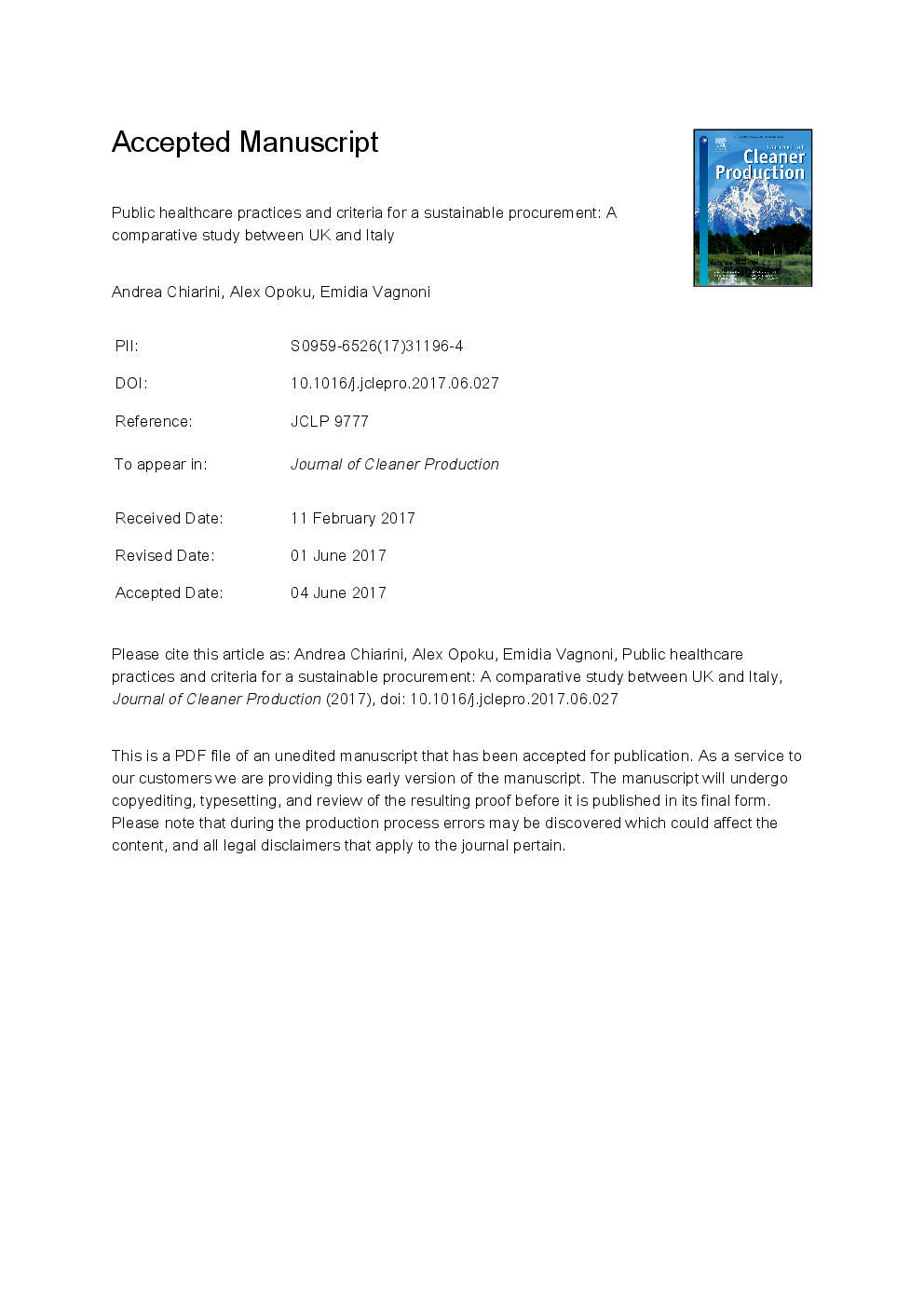ترجمه فارسی عنوان مقاله
شیوه های مراقبت های بهداشتی عمومی و معیارهای تدارکات پایدار: مطالعه تطبیقی بین انگلیس و ایتالیا
عنوان انگلیسی
Public healthcare practices and criteria for a sustainable procurement: A comparative study between UK and Italy
| کد مقاله | سال انتشار | تعداد صفحات مقاله انگلیسی |
|---|---|---|
| 83256 | 2017 | 27 صفحه PDF |
منبع

Publisher : Elsevier - Science Direct (الزویر - ساینس دایرکت)
Journal : Journal of Cleaner Production, Volume 162, 20 September 2017, Pages 391-399

